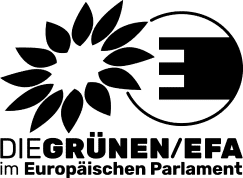WHAT FOLLOWS WILL NOT BE EASY TO READ – BUT IT IS IMPORTANT NONETHELESS.
[English version published in the Guardian here]
Two weeks ago I got on a plane and flew to Lesbos. From Mytilene airport we continued by car to Moria, a small village overlooking the Aegean Sea. The water is clear, in the distance you can see the Turkish coast – only 8km away. The perfect vacation spot. From door to door of Brussels it took me 5 hours.
Over the past four years, most politicians have always reported on the refugee crisis in fairly abstract terms: lots of big numbers that are hard to imagine, complicated or vague statements condemning or regretting something for the 50th time – but basically changing very little. Was ich jetzt schreibe, wird daher nicht abstrakt sein, und ich werde auch nicht viel Ihrer Phantasie überlassen.
From the village of Moria we drove to a former barracks, idyllically situated in an olive grove. The closer you get to the barracks, the more people are walking back and forth along the roadside. At the beginning there are only a few, then more and more, and at the end there are so many that we have to stop and park. Some also stand, or sit and talk. When I get out of the car and walk to the camp, I notice that something is wrong. I would have expected much more noise – but you rather hear suppressed voices and footsteps of people pushing through the gate. I see all kinds of faces: young, old, women with children, children without mothers, men with injuries.
After leaving behind the official barracks where the Greek authorities are located, I first see several rows of tents, halls, and plastic huts – a bit reminiscent of a construction site. And then it starts to smell – the way it smells when a lot of people with limited access to sanitary facilities live together in a small space. At the end of the actual camp you can see a bigger mess – with homemade tents and boxes under the olive trees. There is trash lying next to it. And next to the garbage more people. Hundreds of people waiting for news about their asylum decision. Some have been waiting for over 2 years.
At night, they tell me, it gets worse. Some women prefer to use diapers so they can stay in bed and not face the risk of being raped or otherwise molested; or so they don’t run the risk of having their stuff stolen. But words like ‘danger’ or ‘risk’ somehow feel wrong in this context. Why? Because it leaves room for doubt. It leaves it unclear if these horrible things are really happening, or if they are just a ‘risk’. But now I know.
There is nothing abstract about this at all. Women are raped. Regularly. And every night there are stabbings, something is stolen or robbed by force. Every single night.
In the absence of a functioning system, we keep people here in a terrible limbo, vegetating in the most adverse conditions with no prospect of improvement. And we create all these problems ourselves by traumatizing, depressing and imprisoning people. Doctors at the camp, of which there are far too few, say the psychological and physical consequences are terrible. People live for far too long in far too confined a space, without perspective and on endless call, often without enough to eat, without access to medical care and often without a shower or toilet.
It is a humanitarian crisis – and on European soil. As I listen to people’s stories here at the camp, I am no longer proud to be European. And how could I also be proud when I watch powerlessly as people die around me? Our continent, which wants to become the first emission-free continent in the world and the star in the digital age, is the same continent that lets people starve and die – only 5 hours away from Brussels.
It was getting late, so I got in the car and drove the 10 minutes back to Mytilene. There I checked into the hotel, ate a good Greek salad, and then tiredly fell into my cozy bed. The soothing sound of waves on the quay could be heard in the background. That night 262 asylum seekers arrived on the coast, just a few kilometers north of the hotel where I watch Netflix to distract myself from the impressions of the day. I try to sleep.
The next day I meet a number of people who have come here to help. They come from everywhere, attracted by the fact that they don’t want to just watch. You have to do something, anything. Lawyers, doctors, psychologists, entrepreneurs, students, fitness instructors, elementary school teachers and bicycle mechanics. They help meet basic needs, protect fundamental rights, and create some employment. For example, in handing out diapers to women so that they are not harassed at night. But despite a close and strong community, and despite the tremendous motivation provided by the clear purpose of their daily work, they look at me with anger, frustration and disappointment.
I feel like shit when they ask me, “Well, what’s the plan, Damian? Sometimes I want to explain how the Commission works, the Parliament, or why the member states cannot agree on a common negotiating position – but then I stop. They don’t ask me why it doesn’t work in theory. They are asking me on behalf of those they just worked with today. And yesterday. And the day before.
They ask me for he boy who died of fever just a week before I arrived because he couldn’t get proper care. For the 1200 unaccompanied minors who freeze under the olive trees. Without beds, without parents, just waiting. They ask me for the community leader in the camp, 22 years old, who spends her days translating in the hospital and informing and reassuring her compatriots. The do not ask me why the Commission does nothing, why the Parliament alone is powerless, and why the Ministers of the Interior fail. No.
They ask me for the 15,392 people living in this camp at the time of my visit. They ask me as people who see us failing and not finding solutions to save people’s lives.
And only then do I really understand: Europe has no plan. And this is the first time I’m really ashamed to be European. Now I ask myself, even more strongly than before: What is the plan, Ms. Von der Leyen? Prime Minister Mitsotakis? Chancellor Merkel? President Macron? Do you feel the urgency of the situation? Do you know that every night that we fail and don’t find a solution, women are subjected to rape, children die, and someone can be stabbed? What’s the plan, Europe?
Negotiations can be hard, sure. But we managed to agree on a joint budget where everyone gets their fair share.
I don’t expect us to find an answer to the big questions right away. On the contrary, I want to invite everyone to join me in thinking about what a logical answer might look like. I understand that there are different opinions on this – some that are more focused on repatriation, others that are more about distribution mechanisms. But I expect us to be honest, to comply with the laws and values of our continent; to develop systems and processes that work; to put in place short-term measures that take into account the magnitude of the challenges, the coming winter and the suffering on the ground. Not resolving this situation is not only cruel, it is inhumane, stupid and will have long lasting consequences for the lives of those affected as well as for the future stability of our Europe.
Have the days in Lesbos opened my eyes? Yes. Do I recommend that all members of all parliaments, the commissioners and the interior ministers come here themselves? Yes, I do. If we continue to deal with the problem in the abstract, our answers will continue to be abstract and inadequate.
On site, someone told me about an appropriate Greek proverb: You can’t hide an elephant under a stone. If we continue to turn away and ignore the fact that people are losing their lives here, I don’t see how any of us can be proud to be in elected or other public office.

